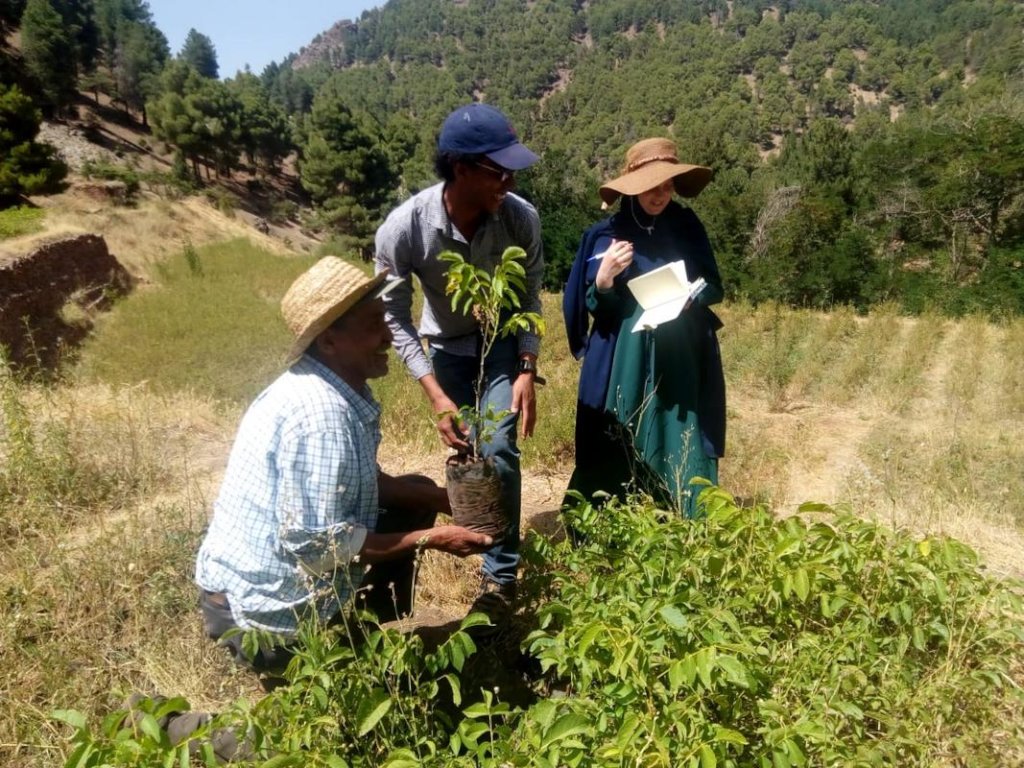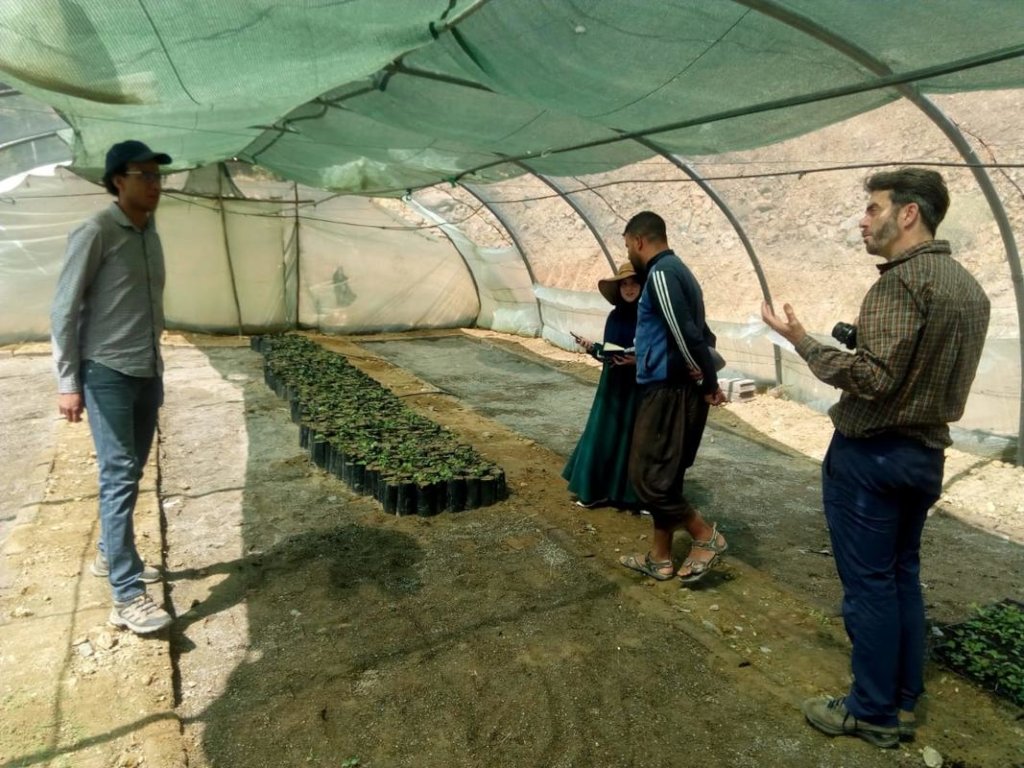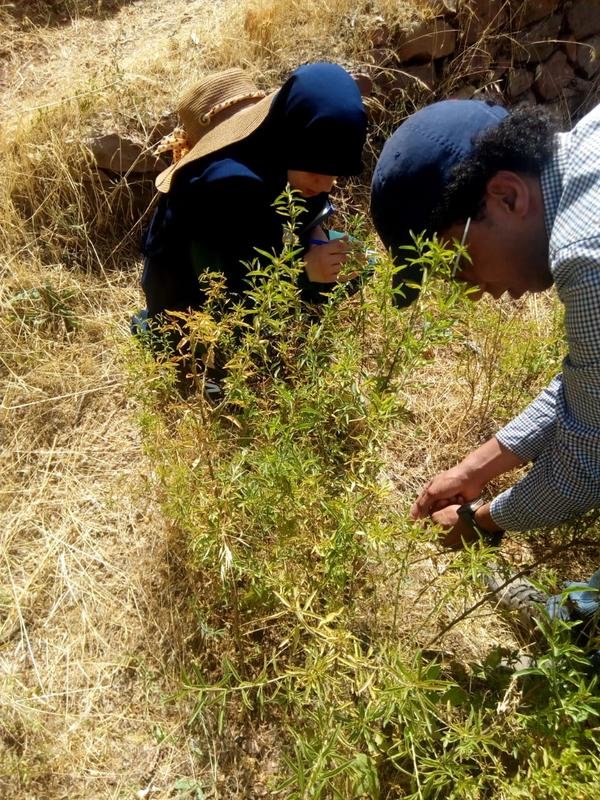By Hajiba Boumasmar | HAF Intern
I had the pleasure of accompanying Said, HAF Project Manager; Hassan, an assistant; and Tobi, a teacher at United World Colleges, on two nursery visits in the Marrakech region. As someone who has always been passionate about agriculture and the environment, the nursery visits had a positive impact on my choosing the High Atlas Foundation to continue my professional career, after obtaining a master’s degree in biotechnology and sustainable development of agro-resources.
The Imegdal nursery is under the supervision of Hassan, a skilled technician also competent in the manufacture of compost made from hay and manure. Hassan spoke to us about transplanting the tree saplings and watering techniques. This nursery - initially funded by the Global Diversity Foundation and the Darwin Initiative - includes several types of plants such as: argan, carob, cherry, almond, and walnut because of its agricultural, economic, environmental, and health importance. Additionally, the High Atlas Foundation wants to protect the agricultural heritage of Morocco and provide a sustainable environment for the growth and development of these plants. Further, these varieties keep the soil fertile while avoiding the use of chemical fertilizers that cause adverse effects both on the quality and health of groundwater.
The Tadmamt nursery is the result of a partnership between Morocco’s office of High Waters and Forests and the High Atlas Foundation for tree planting; its initial funding came from the United Nations Development Program. This nursery, which mainly cultivates almonds, cherries, and walnuts, is under the supervision of Omar. Daily maintenance of the nursery organized by Omar, as well as the grafting technique utilized here, is the best solution to ensuring high quality fruit and profitability of crops.
These nurseries contribute substantially to the sustainable development of local areas. Specifically, they provide a significant number of carob, argan, and walnut plants throughout the year to the inhabitants of the region including landowners and farmers as well as new and old agricultural cooperatives. Ultimately, the nurseries help local communities, particularly those involved in agricultural activities, while keeping our agro-resources.
By Julia Difabrizio | HAF Intern, UVA student
By Camelia Harkousse | HAF intern
Project reports on GlobalGiving are posted directly to globalgiving.org by Project Leaders as they are completed, generally every 3-4 months. To protect the integrity of these documents, GlobalGiving does not alter them; therefore you may find some language or formatting issues.
If you donate to this project or have donated to this project, you can receive an email when this project posts a report. You can also subscribe for reports without donating.
Support this important cause by creating a personalized fundraising page.
Start a Fundraiser

